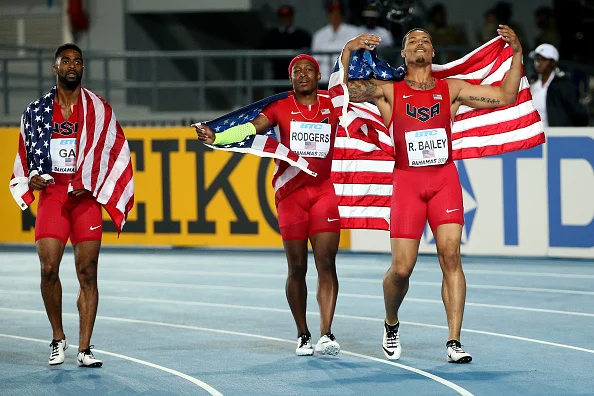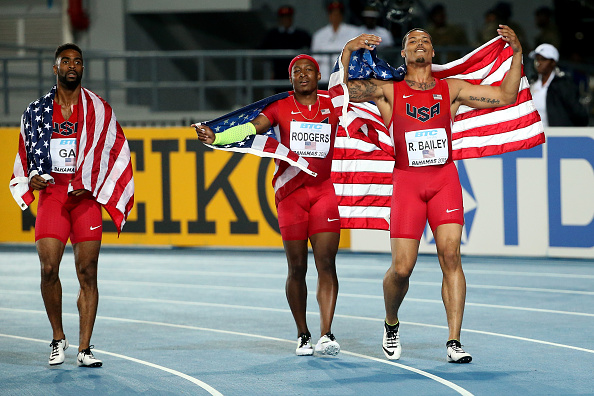NASSAU, Bahamas — What to make of Tyson Gay? Do you think that a mistake — an error that clearly is weighing on the man — ought to follow him around forever, ought to mark him as a cheater until the end of time, ought to drag him down and cast him out as an exile from among the others in track and field, a sport in which time has proven sanctimoniousness is altogether risky business? Or do you believe in second chances? In the power and spirit of forgiveness? Isn’t the glory and grace of the story of the United States of America this very thing — that we all make mistakes and yet each and every one of us gets a second chance?
The rules for pubic forgiveness are actually quite simple. You come clean. You admit what you did, fully and completely. You say you’ll never do it again.
That formula earns you a fresh start.
In a short but remarkable soliloquy Saturday night under Thomas A. Robinson Stadium, after the U.S. men’s 4x100 relay team had defeated Usain Bolt and the Jamaicans, with Gay running the third leg, Gay seized his opportunity.
With Bolt just a few feet down on the very same dais — the very same Bolt who just a few days before had suggested that Gay ought to have been kicked out of track and field for a 2013 doping sanction — Gay, ever soft-spoken, made his case.
Asked how he would assure people he was clean, especially young people, Gay said, “My situation, you know, I’ve never deceived any kid in the world or America that they can’t do anything that they put the hard work into it.
“At the end of the day, my situation was understood by three organizations — they understood it was a mistake,” a reference to the entities that investigated his complicated, nuanced doping matter.
“I went down the wrong path believing some supplements were clean, which they weren’t.
“I would like to apologize to any kid, you know, who feels they were deceived, who thinks they can’t do whatever they want.”
There’s more, but just this for context and background:
Bolt’s 9.58 stands as the world-record in the 100, set in 2009 in Berlin.
Gay and Yohan Blake of Jamaica have each run 9.69. That is the second-fastest 100 time of all-time. Gay ran his in 2009, Blake in 2012.
Gay tested positive in 2013 for a banned substance that he first used in July, 2012, just a few weeks before his first race at the London Games.
The then-standard two-year ban was cut in half, to a single year, because Gay provided “substantial assistance” to the U.S. Anti-Doping Agency.
Last December, Gay’s coach, Jon Drummond, was given an eight-year suspension.
The idea of providing “substantial assistance” in exchange for a reduced sentence is familiar in the criminal justice system; it’s a new twist in the campaign against doping; Gay’s case marked one of the first such instances, and Bolt’s comments suggest the kind of push-back in some quarters it’s going to take for the notion to take hold, which anti-doping officials are insistent must be the case.
“The stupidest thing I’ve ever heard,” Bolt told Runner’s World, according to a Times of London article published April 24, adding, “He got a year just because he talked to the authorities about how it was done and who helped him. That sends the wrong message: ‘If you do it and get caught, just tell us all you know and we’ll lower your ban.’ "
Gay did not respond in any manner Saturday to those remarks.
Instead, after apologizing “to any kid,” he continued with this:
“I would like to thank the Bahamas, a lot of the Caribbean countries, including Jamaica, for having me at their meet, for understanding my situation.
“So, beside that, the past is the past. I ask for forgiveness for a mistake. Right now, I’m looking forward. I double-check everything. We go from there.”
For sure, he does.
Now, everyone else?



